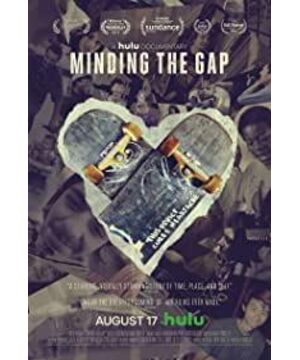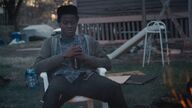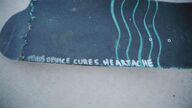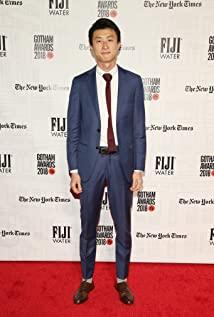(No one should read it. The first time I wrote a film review, it was too bad, please forgive me, don't complain?) There are serious spoilers!
I just watched the beginning of "Minding the Gap". A few teenagers skated on the street and smiled. I was also infected. The world of skateboarding was so beautiful, but it was only short-lived.
I realized later that this is not just a mere skateboarding documentary, family, society..... The three protagonists have similar childhood experiences. Time has changed everything. I think the tone of the whole film is dark, which makes me not courage to watch it in full screen. I am afraid that their reality will have a greater impact on me. Fortunately, at the end, their later life is still complete.
Zark, a handsome white guy, is not bad to friends because of domestic violence and wants to leave home as soon as possible and live by himself early. The documentary does not have many pictures of his parents. He is a child who grew up in domestic violence. I think he has a good wife Nina. After raising the children, financial pressure made them contradictory. Zark obviously still has psychological problems. Under a lot of pressure, he vented to Nina. This is actually what I am most afraid of seeing (documentary) No filming), I am very heartbroken. It seems that most of the wives who have experienced domestic violence were unwilling to mention it. They chose to endure it again and again, still self-hypnotizing that he was still a "good husband." "Good" "I still don't believe that he is that kind of person." I can't understand their feelings. It's not the person involved. I can't empathize with them.
Later, Zark left his family and lived with another woman, but also raised support, which was also a good choice.
Keire, black, I think he is kind and simple, and has endured a lot of social pressure. In the beginning, there is a scene where little Keire was bullied at the skate park. In the skateboarding culture, he chose to vent on bad skateboards, but he was too young to be able to step on badly. He was powerless in this process, but only at the time. If he stepped badly, he would be comfortable.
When he was a child, he was also beaten by his father. He said that only skateboarding could liberate him. I really felt the power of skateboarding in his eyes. Keire is black, so in addition to domestic violence, there is social discrimination. Keire, who has just entered the youth, was checked by the police for his documents while driving, and was also targeted by a gun. When he said this, he was really scared. And when he was talking about these topics with white friends, he was embarrassed and surrounded him. As his father said, "You have white friends, and the relationship is very good, but you should never forget that you are black." He loves his father. Although Keire suffered a lot of injuries, he was extremely painful when his father died. What impressed me was that his father said that if I had a choice, I would still choose to be a black man, because there are always things we want to do. After listening to this, I think his father is very courageous and a tough black man.
After I liked Keire, he left the city where he grew up, went to a new place, got a job, and got sponsorship from a skateboard brand.
Liu Bing, Chinese, film director, story recorder. He was violent by his stepfather in childhood, and so did Liu Bing's mother. The story about Liu Bing is presented through self-report, the description of his younger brother, and the communication with his mother, and it is relatively short. Actually, I'm very curious, can Liu Bing speak Chinese, what about his mother? Why choose to go to the United States?
The director's ideas also represent the concept of the film to a certain extent. I think Liu Bing is someone who wants to say no to domestic violence. He wants Nina and mother to let more people escape. (I don’t know... I think he hopes that)
Dark experience, cruel reality, only skateboarding can make people escape for a short time. Fortunately, there was skateboarding, so they were not too bad at the time.
View more about Minding the Gap reviews







